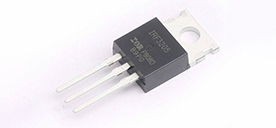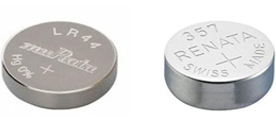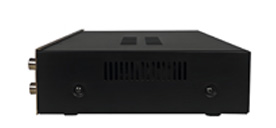Revolutionizing Embedded Systems: The Versatility of 8-Bit MCUs
2023/9/22 11:48:20
Views:
In the field of embedded systems, 8-bit microcontrollers (MCU) have always played an important role. Although they may not be as powerful as 32-bit or 64-bit processors in terms of processing power, 8-bit MCUs have unique advantages in many applications, and their versatility makes them the first choice for many innovative projects. This article will take an in-depth look at the architectural features of 8-bit MCUs and their widespread use in various application designs.
Architectural features of 8-bit MCU
One of the core features of 8-bit MCUs is their compact architecture. They typically have smaller memory and processing capabilities, which gives them significant advantages in cost and power consumption. The following are some of the main architectural features of 8-bit MCUs:
1. Low power consumption: 8-bit MCUs generally have excellent low-power performance, which makes them ideal for battery-powered devices that need to run for long periods of time. This includes portable devices, sensor nodes and Internet of Things (IoT) devices.
2. Compact packaging: 8-bit MCUs often come in small packages, which makes them ideal for space-constrained applications in embedded systems. Whether it's a control panel or a medical device, they get the job done with ease.
3. Real-time performance: 8-bit MCUs are typically capable of delivering real-time performance, which is important for applications that require fast responses to inputs, such as motor control or sensor data processing.
4. Low cost: Due to their relatively small size and power consumption, 8-bit MCUs are generally less expensive, which makes them popular in cost-sensitive applications.
Multifunctional applications of 8-bit MCU
8-bit MCUs are widely used in various application fields. Here are some examples:
1. Home automation: 8-bit MCU can be used to control smart home devices, such as smart lighting, temperature control systems, and security systems. They can enhance the performance of home automation systems through low power consumption, real-time performance and cost-effectiveness.
2. Medical equipment: In medical equipment, 8-bit MCU is used for monitoring, control and data acquisition. For example, portable blood glucose meters, thermometers and heart rate monitors often use 8-bit MCUs to achieve high-precision data processing.
3. Industrial Control: 8-bit MCU plays a key role in industrial automation and control systems. They are used to control motors, sensors and actuators to ensure stable operation of the production line.
4. Automotive electronics: 8-bit MCUs are also widely used in automotive electronic systems, including engine control, air conditioning control, safety systems and entertainment systems. Their low power consumption and reliability are critical for automotive applications.
5. Internet of Things (IoT): 8-bit MCU is the core of IoT devices. They are used in sensor nodes, smart home devices, smart city solutions, and more. Their small package and low power consumption make them suitable for long-running IoT applications.
Conclusion
8-bit MCUs occupy an important position in embedded systems with their compact architecture, low power consumption and versatility
Related Information
-
-
Phone
+86 135 3401 3447 -
Whatsapp





